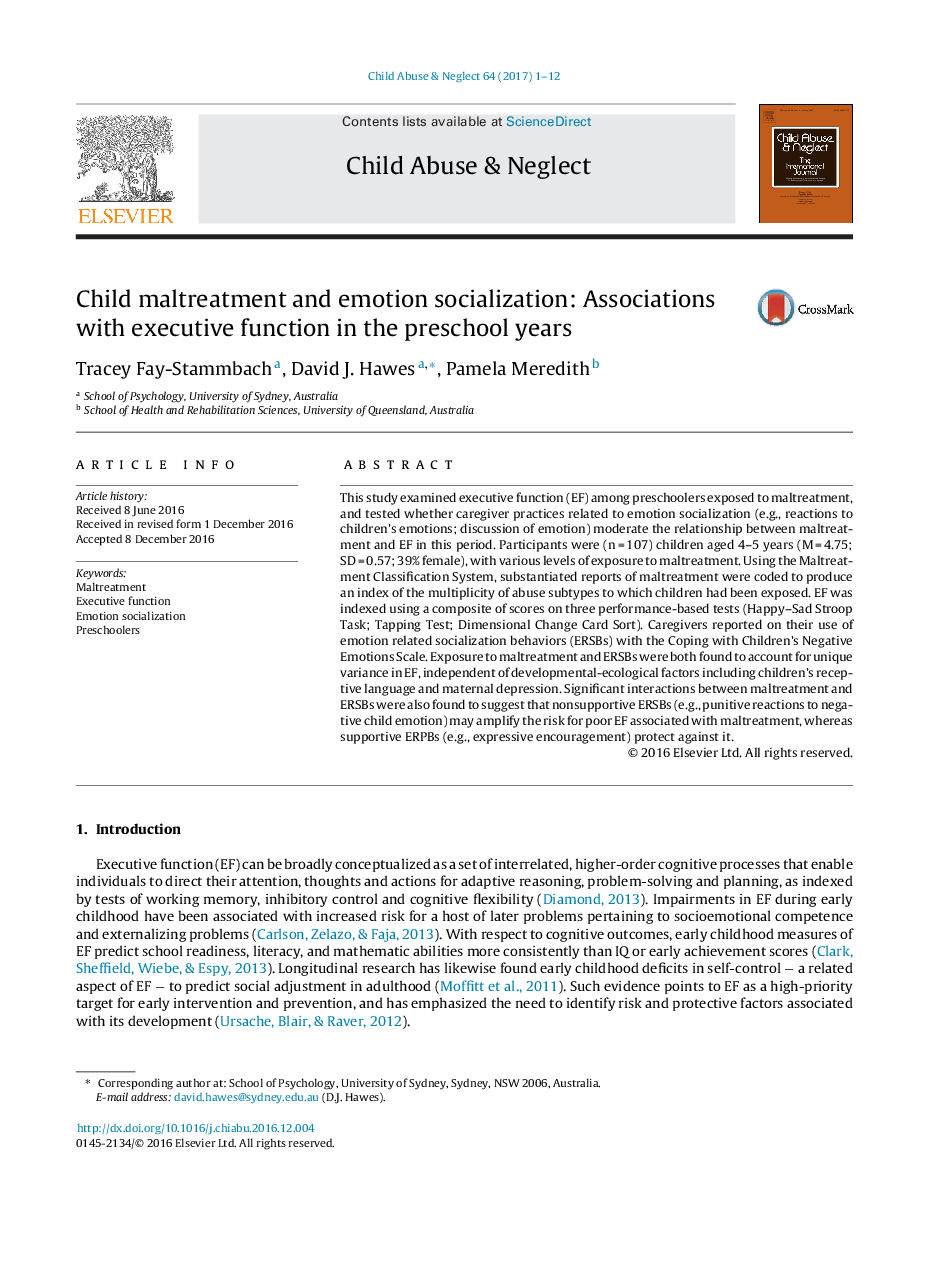ترجمه فارسی عنوان مقاله
بدرفتاری با کودک و اجتماعی شدن احساسات: انجمن هایی با عملکرد اجرایی در سال های پیش دبستانی
عنوان انگلیسی
Child maltreatment and emotion socialization: Associations with executive function in the preschool years
| کد مقاله | سال انتشار | تعداد صفحات مقاله انگلیسی |
|---|---|---|
| 127923 | 2017 | 12 صفحه PDF |
منبع

Publisher : Elsevier - Science Direct (الزویر - ساینس دایرکت)
Journal : Child Abuse & Neglect, Volume 64, February 2017, Pages 1-12
ترجمه کلمات کلیدی
بدرفتاری عملکرد اجرایی، اجتماعی شدن احساسی، کودک پیش دبستانی،
کلمات کلیدی انگلیسی
Maltreatment; Executive function; Emotion socialization; Preschoolers;

